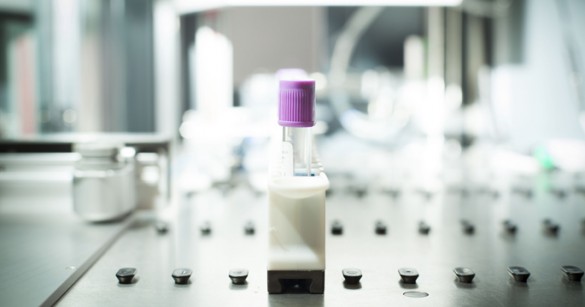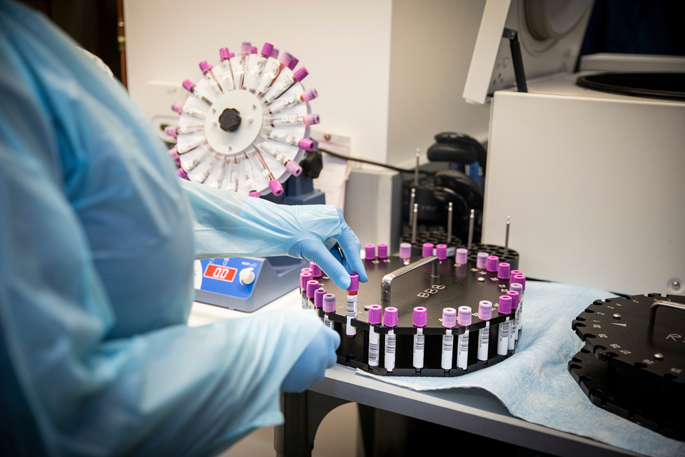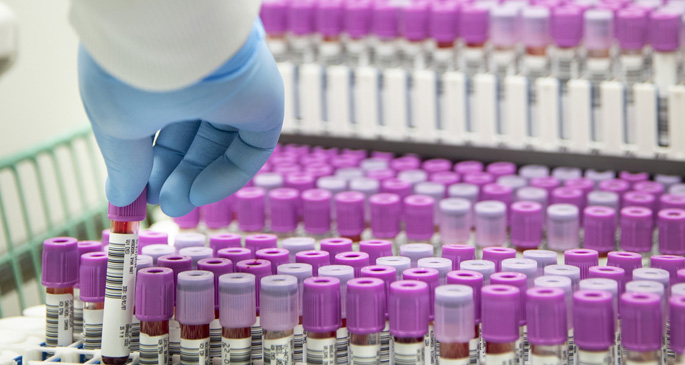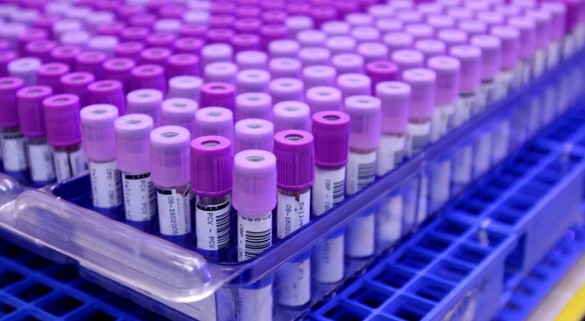
Vanderbilt’s biobank, BioVU, has begun to collect and store plasma, the liquid part of blood, to aid studies of diseases ranging from heart failure and hypertension to breast cancer.
Thomas Wang, M.D., director of the Division of Cardiovascular Medicine, and Quinn Wells, M.D., Pharm.D., MSCI, will use the new plasma resource to search for biomarkers for congestive heart failure.
“The BioVU plasma collection program provides an extraordinary opportunity to accelerate biomarker discovery by allowing us to simultaneously measure many biomarkers in a large number of heart failure patients and then focus on those that correlate with important clinical outcomes,” said Wells, assistant professor of Medicine and Pharmacology.
Plasma — rich mixture of proteins and metabolic compounds — helps reveal the impact of diet, medication and other environmental exposures on health.
In the past several weeks, 1,000 plasma samples have been collected. The goal is 3,600 samples, which will initially be evaluated in three studies. The others are:
• Medication adherence in patients with resistant hypertension, led by Candace McNaughton, M.D., MPH, Christianne L. Roumie, M.D., MPH, and Russell L. Rothman, M.D., MPP, and
• Mechanisms underlying breast cancer immunotherapy, led by Raymond Mernaugh, Ph.D.
Mernaugh, research associate professor of Biochemistry, has developed immunoassays to detect antibodies produced by breast cancer patients in response to chemo- and bio-therapeutic interventions. With the support of start-up funds from the Vanderbilt Institute of Chemical Biology, he is studying whether these antibodies improve the course of treatment.
He also will use plasma samples to further develop new non-invasive assays that can quickly determine patients’ response to therapy.
With more than 190,000 DNA samples, BioVU is one of the world’s leading DNA repositories supporting genomic and genetic research.
“BioVU has been processing DNA from leftover blood for over seven years now,” said Sarah Collier, Ph.D., BioVU project manager. “We are ready to expand. Plasma offers a wider breadth for research capabilities.”
BioVU is an “opt-out” repository. It collects samples of blood cells and plasma from Vanderbilt patients that are leftover from routine blood draws during their treatment — unless the patients specifically opt out from participating in the program.
The samples are “de-identified,” meaning they are processed, stored and labeled without any information that would reveal the patients’ identities. They are linked to similarly de-identified electronic medical records, called the “synthetic derivative.”
In this way, researchers can genotype and study samples from patients with specific medical conditions and histories. For Vanderbilt scientists with questions about BioVU, contact biovu@vanderbilt.edu.
The collection of plasma is, in part, supported through a grant from the Patient-Centered Outcomes Research Institute (PCORI), an independent, non-profit organization.
The grant was awarded to Vanderbilt earlier this year to support establishment of a Clinical Data Research Network, which aims to build infrastructure to support comparative effectiveness research to improve patient health.















